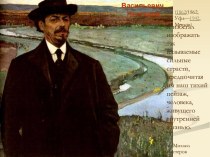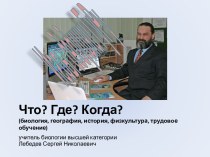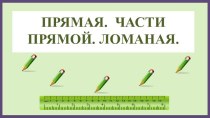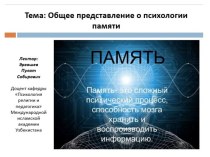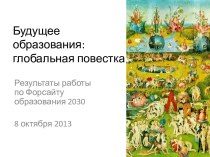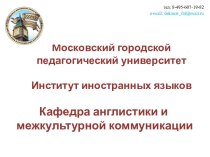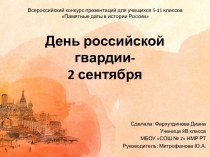Слайд 2
In 1843, after a short spell as editor
of a liberal newspaper in Cologne, Marx and his
wife Jenny moved to Paris, a hotbed of radical thought. There he became a revolutionary communist and befriended his life long collaborator, Friedrich Engels. Expelled from France, Marx spent two years in Brussels, where his partnership with Engels intensified.
Friedrich Engels
Слайд 3
They co-authored the pamphlet 'The Communist Manifesto' which
was published in 1848 and asserted that all human
history had been based on class struggles, but that these would ultimately disappear with the victory of the proletariat.
Слайд 4
In 1849, Marx moved to London, where he
was to spend the remainder of his life. For
a number of years, his family lived in poverty but the wealthier Engels was able to support them to an increasing extent. Gradually, Marx emerged from his political and spiritual isolation and produced his most important body of work, 'Das Kapital'. The first volume of this 'bible of the working class' was published in his lifetime, while the remaining volumes were edited by Engels after his friend's death.
Слайд 5
Marx's most popular theory was 'historical materialism', arguing
that history is the result of material conditions, rather
than ideas. He believed that religion, morality, social structures and other things are all rooted in economics. In his later life he was more tolerant of religion.
Слайд 6
Marx abandoned the six-volume scheme, and decided instead
to call the whole work Capital, which would be
divided into four volumes:
Production
Circulation
The system as a whole
Theories of surplus value
Marx had originally intended the Contribution to be only the introduction to the ‘Economics’, which would be separated into six volumes:
Capital
Landed Property
Wage Labor
The State
International Trade
The World Market
Слайд 7
Key Ideas of Karl Marx
Capitalist society is divided
into two classes
The bourgeoisie increase their wealth by exploiting
the proletariat
Those who have economic power control all other institutions in society
Ideological control
The result of the above is false class consciousness
Revolution and communism
Слайд 8
Capitalist society is divided into two classes:
The Bourgeoisie
or the Capitalist class are the ones who own
and control the wealth of a country. These control the productive forces in society (what Marx called the economic base), which basically consisted of land, factories and machines that could be used to produce goods that could then be sold for a profit.
The majority, or the masses, or what Marx called The Proletariat can only gain a living by selling their labour power to the bourgeoisie for a price.
Слайд 9
The bourgeoisie increase their wealth by exploiting the

proletariat
Marx argued that the bourgeoisie maintain and increase their
wealth through exploiting the working class.
The relationship between these two classes is exploitative because the amount of money the Capitalist pays his workers is always below the current selling, or market price of whatever they have produced. The difference between the two is called surplus value. Marx thus says that the capitalist extracts surplus value from the worker. Because of this extraction of surplus value, the capitalist class is only able to maintain and increase their wealth at the expense of the proletariat. To Marx, Profit is basically the accumulated exploitation of workers in capitalist society.
Marx thus argues that at root, capitalism is an unjust system because those that actually do the work are not fairly rewarded for the work that they do and the interests of the Capitalist class are in conflict with the interests of the working class.
Слайд 10
Those who have economic power control all other
institutions in society
Marx argued that those who control the
Economic Base also control the Superstructure – that is, those who have wealth or economic power also have political power and control over the rest of society.
Слайд 11
Ideological control
Marx argued that the ruling classes used
their control of social institutions to gain ideological dominance,
or control over the way people think in society. Marx argued that the ideas of the ruling classes were presented as common sense and natural and thus unequal, exploitative relationships were accepted by the proletariat as the norm.
Слайд 12
The result of the above is false class
consciousness
The end result of ideological control is false consciousness
– where the masses, or proletariat are deluded into thinking that everything is fine and that the appalling in which they live and work are inevitable. This delusion is known as False Consciousness. In Marxist terms, the masses suffer from false class consciousness and fail to realize their common interest against their exploiters.
Слайд 13
Revolution and communism
As far as Marx was concerned,
he had realised the truth – Capitalism was unjust
but people just hadn’t realised it! He believed that political action was necessary to ‘wake up’ the proletariat and bring them to revolutionary class consciousness. Eventually, following a revolution, private property would be abolished and with it the profit motive and the desire to exploit. In the communist society, people would be more equal, have greater freedom and be happier.
Слайд 14
Criticisms of Traditional Marxism
Marx’s concept of social class
has been criticised as being too simplistic – today,
there are clearly not just two social classes, but several; moreover, most people don’t identify with other members of their social class, so it is questionable how relevant the concept of social class is today.
Clearly Marx’s predictions about capitalism ending and the ‘inevitable success of communism’ have been proved wrong with the collapse of communism.
Capitalism has changed a lot since Marx’s day, and it appears to work for more people – it is less exploitative, so maybe this explains why it still continues to this day?















